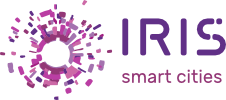
Prelude to better recognition and mentoring of startups
Three students from the Utrecht University, together with Prof. Mark Sanders, have developed an algorithm that can measure the extent to which a startup, project or existing organization is developing solutions to make a city ‘smart’. The method developed by Maaike Hermse, Imke Nijland and Martina Picari was published last week in a Working Paper via the website of the Utrecht University School of Economics and will be submitted for publication in the professional journal “Smart Cities”. The Smart City Index will provide cities and municipalities with a tool to quickly recognize and help develop innovation that is useful to them.
A rapidly growing percentage – already more than 75 percent – of people in Europe live in urban areas. In these areas, more than seventy percent of the available energy is used. Changes in, for example, climate and population numbers mean that cities increasingly have to provide smart solutions. From energy use to mobility, health to the labor market, and the design of limited space that all these people share together. Administrators in cities are therefore increasingly looking to new businesses and projects to provide solutions so that citizens can continue to live healthily, affordably and pleasantly in the city.
Faster recognition, better guidance
The algorithm makes it easier to distinguish between different forms of ‘smart city’ activity. Both researchers and municipalities can use this method to more quickly recognize activities that provide solutions for rapid changes in the city. With the right guidance, these companies or projects can then be taken a step further.
The research is part of the IRIS project. In the project, various partners across Europe are working on sustainable city neighborhoods of the future. Within IRIS, Mark Sanders is involved in research into sustainable business models: “With this smart city index, based on an extensive literature review, the students coded a large number of startups and projects in the IRIS cities. This shows that the index does what it was designed to do. I think this is an important step forward in research and the challenge of making our cities smarter and more sustainable.”

Still little known about ‘smart city startups’
Maaike Hermse, Imke Nijland and Martina Picari distinguish two necessary conditions in the algorithm that the activity must meet, such as the use of technology and the location of the activity, and five conditions that determine the extent to which the activity contributes to making the city smarter. The so-called ‘intensity conditions’ are scored on the presence of ICT, citizen engagement, sustainability, quality of life and economic conditions.
After her master program in International Management at Utrecht University, Martina Picari started a second master program, Econometrics & Operations Research, at VU University Amsterdam. Picari: “We applied the Smart City Index on three datasets containing information from each startup who participated in three different incubators. But in fact, the algorithm can be applied to any dataset with a brief description of a company’s activities.”
Imke Nijland studied Business Development & Entrepreneurship at Utrecht University during the research. Meanwhile, after graduating, she is working as a Delivery Manager at Move4Mobile, an organization specialized in mobile software solutions. Nijland: “What surprised me most during our research was how little was known about ‘smart city startups’, while it is very important in the development of cities to be able to recognize this type of startup.” Picari agrees.
Nijland thinks the index can make an important contribution in identification. “The Smart City Index can be applied to identify, research and/or mentor this specific group of startups. This can ensure that the startups are more successful or more startups are successful. This in turn helps in the development of urban areas.”
More Information
- Paper: https://www.uu.nl/en/organisation/utrecht-university-school-of-economics-use/research/publications/working-papers/2021Recipes for smart city
- Recipes for smart city innovation: https://www.irissmartcities.eu/content/new-recipes-smart-city-innovation

